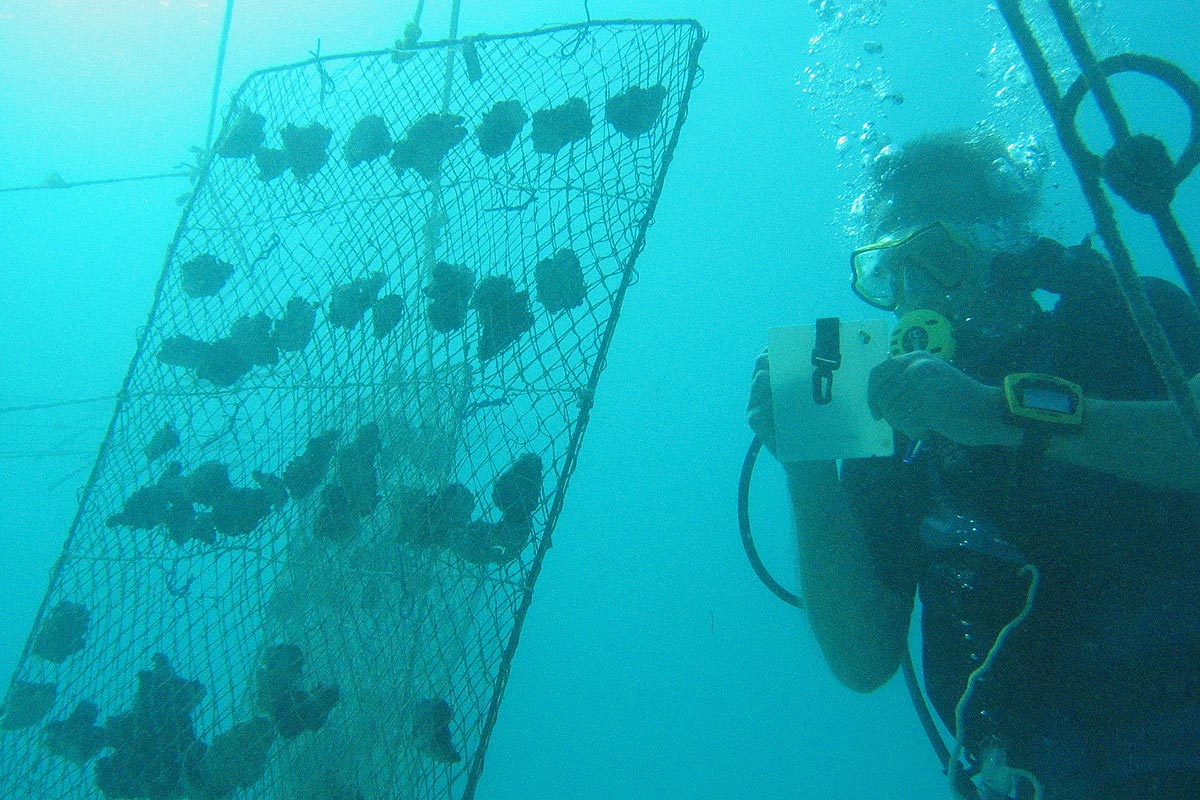December 2013 – Not an Easy Decision
20.12.2013
The results from our cultivation trial with the black sponges (Agelas Mauritania var. oxeata) which was conducted over a year in the big farm speak a clear language. The sponges don’t grow fast enough under the local conditions and the mortality is too high for commercial production. Under these conditions the sponges would have to be taken care of for more than two years to reach a marketable size.
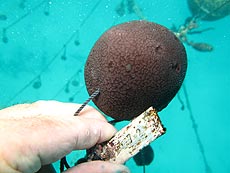
![]()
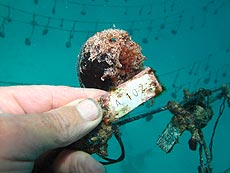
Well grown sponge (l.), dying sponge suffering from infection (r.)
Approximately a quarter of the seedlings would result in a commercially interesting product. With 3000 seedlings and a farm price of $5 per piece, a farm could provide a monthly income of $300 which corresponds to twice as much when compared to the minimal income in Zanzibar. However, a waiting period of two years until income can be generated is too long for local conditions. The seaweed farmers and fishermen are used to earn an immediate income.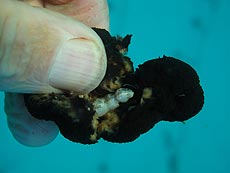
![]()
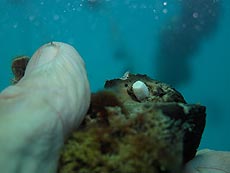
Dying sponge with vermin (l.), Dying sponge with unknown predator (r.)
Most notably, we found that the natural abundance of this species is too low in order to sustainably produce sponges without putting wild populations at risk. It’s not an easy decision, especially after putting so much effort into research, but the facts are clear-cut. Sustainability is important to us and we consequently stop our cultivation trials with this species. We will harvest and sell the current sponges once they have reached a reasonable size.


